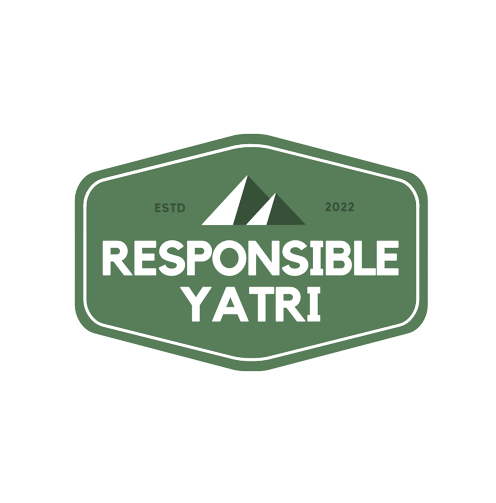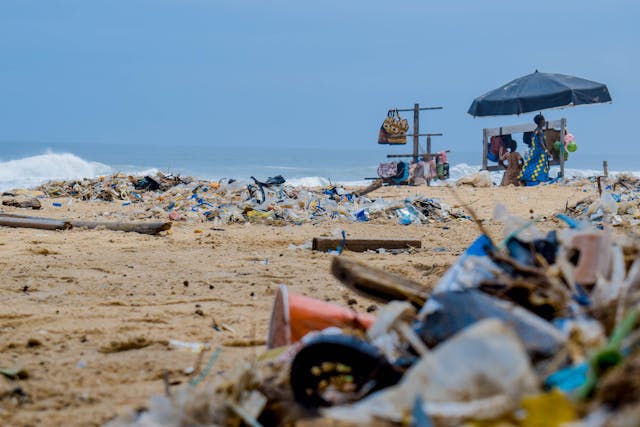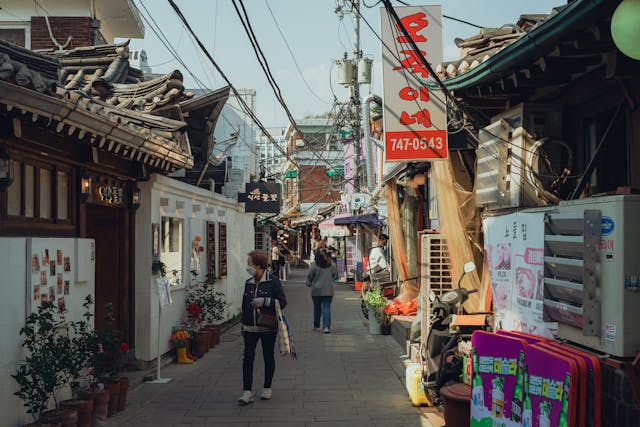Plastic pollution is one of the biggest environmental challenges we face today. Single-use plastics, such as bottles, bags, straws, and wrappers, contribute to ocean pollution, harm wildlife, and take hundreds of years to decompose. As travelers, we often consume a lot of disposable plastics, but by making small changes, we can significantly reduce our plastic footprint.
Traveling plastic-free means not only protecting nature but also supporting local businesses and communities. Many places are working towards plastic-free initiatives, and by avoiding plastic, you contribute to these efforts.
1. Start with Reusable Water Bottles
One of the biggest sources of plastic waste while traveling is single-use plastic bottles. Instead of buying bottled water, invest in a high-quality reusable water bottle.
- Options: Stainless steel, glass, or BPA-free plastic bottles are great options for keeping your water cold or hot.
- How to Use It: Fill your bottle before heading out and refill it whenever you can at public water fountains, hotels, or restaurants. In many countries, you can even ask for water at restaurants to fill up your bottle for free.
- Tip: Consider a bottle with a built-in filter if you’re traveling to areas with questionable tap water.
2. Pack a Cloth Tote or Reusable Bag
Plastic bags are one of the most ubiquitous forms of plastic pollution. When shopping, grabbing a plastic bag is often the easiest option, but you can avoid this by always carrying a reusable bag.
- Options: Foldable cloth bags or sturdy reusable totes are perfect for any occasion—whether you’re shopping at a market or going to the beach.
- How to Use It: Keep a couple of these bags in your daypack or carry-on, and use them whenever you buy something. Many stores abroad also offer discounts when you bring your own bag.
3. Use a Zero-Waste Toiletry Kit
Personal care items are another source of plastic waste when we travel, especially with disposable items like plastic razors, bottles of shampoo, or toothpaste tubes. Switch to zero-waste alternatives to reduce the plastic you use for personal hygiene.
- Shampoo & Conditioner Bars: These solid bars are an excellent alternative to liquid shampoo and conditioner bottles. They’re compact, long-lasting, and free from plastic packaging.
- Toothpaste Tablets or Powder: Instead of a toothpaste tube, opt for toothpaste tablets or powder. They are often sold in reusable glass jars.
- Reusable Razor: A metal razor with replaceable blades is a sustainable alternative to disposable plastic razors.
- Other Items: Consider reusable cotton pads, a bamboo toothbrush, and solid deodorant. You can also use a bar soap that doubles as both body wash and face soap.
- How to Use It: Pack all your toiletries in a small, reusable pouch made from fabric or a biodegradable material. This reduces plastic packaging while keeping your items organized.
4. Avoid Single-Use Plastic Straws
Plastic straws have been banned in many places worldwide due to their detrimental impact on the environment. Avoid using them altogether by carrying your own reusable straw.
- Options: Stainless steel, bamboo, glass, or silicone straws are all great alternatives.
- How to Use It: Keep a compact straw in your bag or a portable case. These straws are easy to clean and use, making them perfect for drinks at cafes or restaurants.
5. Bring Your Own Containers for Snacks and Meals
Takeaway food often comes wrapped in plastic, and it’s easy to fall into the habit of using disposable containers. Avoid this by bringing your own containers.
- Options: Invest in reusable containers made from stainless steel, glass, or bamboo. These are perfect for carrying snacks or leftovers.
- How to Use It: When traveling, pack snacks in these containers instead of buying pre-packaged items. If you’re taking food to go, politely ask the vendor to use your container rather than plastic packaging.
6. Opt for Eco-Friendly Packing Materials
When packing for your trip, try to minimize the use of plastic packaging.
- Eco-Friendly Luggage: Choose suitcases or backpacks made from sustainable materials like hemp, recycled fabric, or biodegradable alternatives.
- Reusable Ziplock Bags: If you need to store liquids or small items, use reusable ziplock bags or silicone pouches. They are easy to wash and use again.
- Eco-Friendly Travel Accessories: Look for packing cubes made of natural fabrics, reusable laundry bags, or silicone pouches to organize your clothes and accessories.
7. Avoid Disposable Cutlery and Plates
Whether you’re eating at a restaurant or enjoying a picnic, disposable cutlery, plates, and napkins often add to the plastic waste problem.
- Options: Bring your own reusable cutlery (stainless steel or bamboo), plates, and napkins. There are compact, lightweight options available that are perfect for travel.
- How to Use It: Keep a set of cutlery and a reusable napkin in your bag for quick meals on the go. If you’re going on a picnic, pack your own utensils and cloth napkins instead of relying on disposable ones.
8. Support Plastic-Free Accommodations
More hotels, hostels, and homestays are adopting sustainable practices and reducing their plastic usage. When booking accommodations, look for eco-friendly places that make an effort to minimize waste.
- How to Find Them: Search for accommodations with sustainability certifications or those that advertise plastic-free policies.
- What to Ask: Inquire about their efforts to reduce plastic waste, such as whether they provide reusable bottles, use biodegradable toiletries, or have recycling programs.
9. Be Mindful of Packaging When Shopping for Souvenirs
Souvenir shopping can sometimes result in excessive plastic waste, especially if items are wrapped in plastic or come with plastic tags and packaging.
- Options: Choose souvenirs made from sustainable materials like wood, metal, or clay. Many local artisans sell handcrafted items that are beautifully made and eco-friendly.
- How to Use It: When shopping, ask vendors to forgo plastic wrapping and use natural materials like cloth bags or paper for packaging.
Traveling plastic-free is not only a step towards protecting the planet, but it also enhances your travel experience by encouraging mindful consumption and a deeper connection with the places you visit. By incorporating these plastic-free packing tips into your travels, you can make a positive impact on the environment while embracing sustainable travel practices.
Remember, every small change counts. The more we choose reusable and eco-friendly alternatives, the greater the collective impact we can have in reducing plastic pollution.





